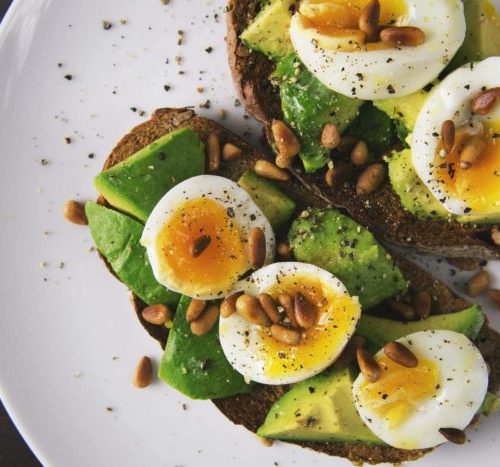What is the fertility diet? Our guide to fertility boosting foods
Without a doubt, good nutrition helps to lay the foundations for fertility and a healthy pregnancy. Nutritional therapist, Neema Savvides breaks down the fertility diet.
How does diet affect fertility?
Without a doubt, good nutrition helps to lay the foundations for fertility and healthy pregnancy. When we talk about fertility we really mean the three main factors that may affect it:
1: Egg quality and ovulation
2: Semen quality
3: The uterine environment in which the baby will grow and thrive.
Diet can strongly affect these and that’s why it’s so important to have a fertility or IVF diet plan, for both men and women.
The health of eggs and sperm is determined by many nutritional and lifestyle factors. What you eat during the 90-day cycle of an egg’s journey to ovulation, and the sperm’s life cycle will impact the health of your eggs and ovaries, and sperm.
Remember that nutritious eggs and sperm are born from a nutritionally dense diet. Essentially what we want to achieve from a fertility diet plan is producing good quality eggs that are protected from damage caused by diet and environmental factors such as alcohol, smoking and pollution. The health of your eggs and uterus can determine whether fertilisation and implantation will occur. It will also determine whether you have a viable pregnancy. Your diet before you conceive has a massive impact on the future health of your baby.
Read more about how weight affects fertility here.
Male fertility diet
Ensuring a healthy diet is as important for men, as sperm need to be in the right shape, move in the right direction and be present in sufficient quantities. They need to survive the long and difficult journey through the women’s reproductive tract in order to fertilise the egg. If undergoing assisted conception such as IUI, ICSI or IVF sperm quality is equally as important. Good quality sperm can also help reduce the risk of miscarriage (chromosomally abnormal sperm are able to fertilise an egg but eventually the women’s body will reject an embryo with faulty DNA).
If you are considering undergoing IVF Treatment, read our full guide on how to prepare for IVF here.
Foods to eat to increase fertility: The fertility and IVF diet
The foundation of a fertility diet is balance. We need to optimise our macronutrient intake (protein, fat, carbohydrates) and micronutrient intake (vitamins and minerals). Proteins are our main building blocks of the body, allowing us to rebuild and repair. Complex carbohydrates provide us with energy and fibre. Healthy fats, provide energy and help to regulate hormones and are a key component of our cell membranes (the outer part of our cells), allowing them to function well.
Good protein sources include: eggs, lean meat and poultry, wild-caught fish, legumes pulses, nuts, seeds
Complex carbohydrate sources: sweet potato, brown rice, quinoa, oats, pulses, legumes, various vegetables such as carrots, broccoli, courgette, green beans, asparagus, spinach, apples, pears etc.)
Healthy fats: olive oil, avocado, chia seeds, flax seeds, and nuts.
All foods are not created equal – so think quality over quantity. Go organic, eat in season, and eat food as close to nature as nature intended.
Our vitamins and minerals help boost the egg and sperm quality and contain antioxidants that help to protect from damage caused by toxins. This is especially important if you are older or have unexplained infertility, as studies have shown there is oxidative damage to egg health in these groups.
The idea of ‘eating the rainbow’ really applies here. Eating a wide range of fruits and vegetables across the colour spectrum is a sure-fire way of optimising your nutrient and antioxidant intake, allowing you to help prevent or reverse some of this damage. Research has shown that women with higher antioxidant levels during IVF cycles had greater success rates. Dark leafy greens, deeper coloured fruits, vegetables (peppers, berries, beetroot), almonds, Brazil nuts, and orange foods such as carrots, sweet potatoes, and butternut squash, amongst many others are especially beneficial.
What foods should you avoid for fertility and why
Trans fats: Trans fats are essentially any foods containing partially hydrogenated vegetable oils, and are generally found in margarine, vegetable oils such as sunflower oil, pre-packaged foods, shelf-stable and processed foods such as cake, cookies, chips, crisps etc.
A diet high in these (and low in good quality monounsaturated fats such as avocados, nuts and olive oil) can have real implications on fertility as they can cause our cell membranes to harden and increases infertility risks by creating problems with ovulation and fertilisation.
Refined sugars: such as white bread, white rice, pasta, instant oats, sugary drinks, and anything ‘sweet, sticky and fluffy’ such as cakes, doughnuts, and pastries.
Changing the types of carbohydrates you consume can impact your fertility significantly. This could be due to the effects of rising blood sugar levels and the effects that have on increased inflammation in the body. These can also impact key fertility hormones such as testosterone, which impacts sufferers of Polycystic Ovarian Syndrome (PCOS).
What if you’re vegan or a vegetarian? The vegan /vegetarian fertility diet plan
If you follow a vegan diet you may need to plan a little more in order to meet your nutritional requirements. There can be a tendency to over-consume carbohydrates, under-consume protein, and have lower intakes of Vitamin D and B12.
When planning your meals think about protein first: beans, lentils, tofu, nuts, and then add your vegetables.
Get your carbohydrates predominantly from vegetables: sweet potatoes, parsnips, carrots, etc. Avoid over consuming starchy carbohydrates like rice and pasta and limit your refined carbohydrate intake.
Ideally, favour vegetables over fruits, but when choosing fruits aim for lower sugar varieties like berries.
At The Evewell we are fertility experts and care about the health and wellbeing of you and your loved ones. If you are thinking about your fertility please get in touch, we are here to help. Whatever you need, we can talk you through your options or put you in touch with our nutritionist or counsellor. Call us on 020 3974 0950 or email us at appointments@evewell.com.
13th May 2020 – Nutritional Therapist, Neema Savvides





